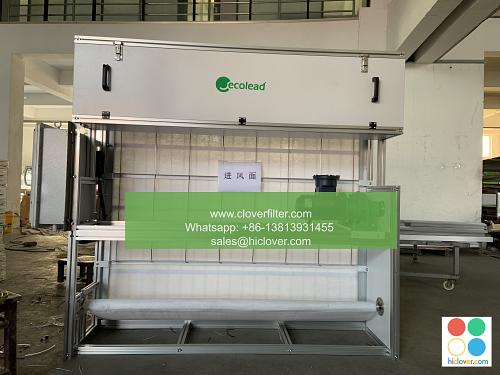The Science Behind Air Filters: How They Work and Why They Matter

Air filters are a crucial component of our daily lives, playing a significant role in maintaining indoor air quality and promoting respiratory health. From HVAC systems to air purification systems, air filters are designed to capture particulate matter, gases, and microorganisms that can pollute the air we breathe. In this article, we will delve into the science behind air filters, exploring how they work and why they are essential in various application areas.
How Air Filters Work
Air filters operate on the principle of mechanical filtration, using a combination of fibers, membranes, and adsorbents to capture contaminants from the air. The most common type of air filter is the pleated filter, which consists of a fiber mesh that is folded into a series of pleats to increase its surface area. As air passes through the filter, particles and gases are trapped by the fibers, while clean air passes through.
Types of Air Filters
There are several types of air filters available, each designed to target specific contaminants and application areas. Some of the most common types of air filters include:
* HEPA filters: Designed to capture 99.97% of particles as small as 0.3 microns, HEPA filters are commonly used in medical facilities, cleanrooms, and residential HVAC systems.
* Activated carbon filters: Used to capture gases and odors, activated carbon filters are commonly used in air purification systems and industrial applications.
* ULPA filters: Designed to capture 99.99% of particles as small as 0.1 microns, ULPA filters are commonly used in cleanrooms, pharmaceutical facilities, and other high-purity applications.
Application Areas
Air filters are used in a wide range of application areas, including:
* Residential HVAC systems: Air filters are used to maintain indoor air quality and promote respiratory health in homes and apartments.
* Commercial HVAC systems: Air filters are used to maintain indoor air quality and promote productivity in offices, schools, and other commercial buildings.
* Industrial applications: Air filters are used to capture hazardous particles and gases in industrial settings, such as manufacturing facilities and chemical plants.
* Medical facilities: Air filters are used to maintain sterile environments and prevent the spread of infections in hospitals, clinics, and other medical facilities.
* Transportation: Air filters are used to maintain indoor air quality in vehicles, such as cars, buses, and airplanes.
Importance of Air Filters
Air filters play a critical role in maintaining indoor air quality and promoting respiratory health. Some of the key benefits of air filters include:
* Reduced allergy symptoms: Air filters can capture allergens such as pollen, dust, and pet dander, reducing allergy symptoms and promoting respiratory health.
* Improved productivity: Air filters can improve indoor air quality, reducing fatigue and stress and promoting productivity in the workplace.
* Extended equipment life: Air filters can help extend the life of HVAC equipment and other machinery by capturing particles and gases that can cause damage.
In conclusion, air filters are a crucial component of our daily lives, playing a significant role in maintaining indoor air quality and promoting respiratory health. By understanding the science behind air filters and their various application areas, we can appreciate the importance of air filters in maintaining a healthy and comfortable indoor environment. It seems like you’re ready to ask a question or start a conversation, but you haven’t provided a specific prompt yet. Could you please provide more details or ask your question? I’m here to help with any inquiries or topics you’d like to discuss!

